Where Were “Their” Oscar Nominations? Nine Memorable Movie Performances That Were Totally Snubbed
From Julia Roberts in "My Best Friend's Wedding" to Lady Gaga in "House of Gucci"
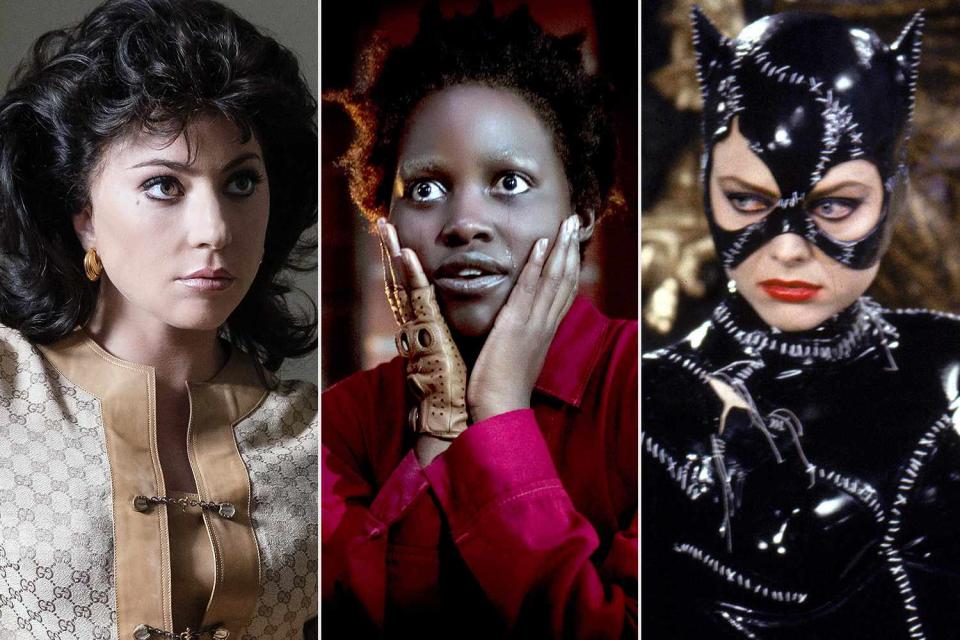
Fabio Lovino/MGM/Courtesy Everett Collection; Claudette Barius/Universal/courtesy Everett Collection; Warner Bros/Dc Comics/Kobal/Shutterstock
Lady Gaga in House of Gucci, Lupita Nyong'o in Us and Michelle Pfeiffer in Batman ReturnsLet's start with the simple truth that no award of any stripe, merit or loftiness will ever get it 100 percent right, or can be expected to — Tolstoy, for example, didn't win the Nobel Prize for literature. What would he have had to do, write a sequel to War and Peace? But it's easier to get worked up about acting subs at the Oscars than literary snubs in Stockholm. There are many cultural reasons for this, but the chief one is that the Oscars are more important. Why else would there have been this year's uproar over the failure to include Barbie's Margot Robbie in the running for Best Actress?
Anyone who keeps up with the Oscars, year after year, will occasionally have shaken a fist at heaven (or at the Academy of Motion Picture Arts and Sciences) over terrific performances that didn't so much as muster a nomination for Best Actor or Actress. With the passage of time, some of these overlooked performances start to look like classics that deserve to be treasured and watched by future generations. Those might include Anthony Perkins in Psycho, Barbra Streisand in Yentl, Ralph Fiennes in Grand Budapest Hotel .... and a few more.
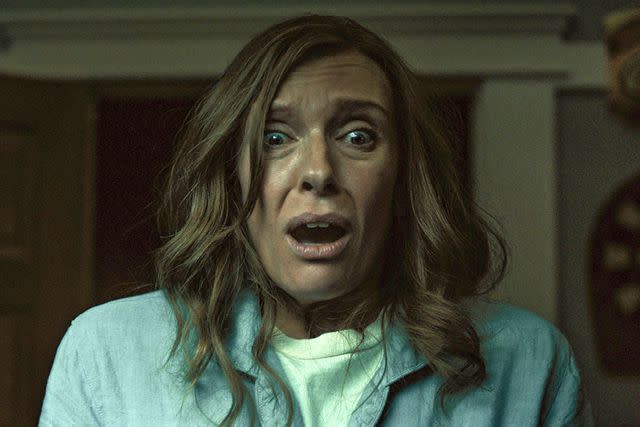
A24/Courtesy Everett Collection
HereditaryToni Collette, Hereditary (2018)
Hereditary, the tale of a demonic cult that infiltrates a family across generations, is saturated with both dread and disturbing imagery (much of it involving heads getting violently separated from their bodies). Its greatest source of terror, however, is Toni Collette’s performance as Annie, a high-strung, desperately unhappy artist, wife and mother. Although Annie resents her two children, whom she never really wanted, she’s all but destroyed by hysterical grief when one of them dies (see above note about heads, bodies). Then she’s seized by an hysterical elation — just as frightening — when she finds a way to summon the child’s spirit. Collette is both heartbreaking and repellent. Her performance is essentially Shirley MacLaine’s hospital scene in Terms of Endearment played at full throttle for two hours straight, only with no one ever delivering a painkiller. There was a brief, ghostly whisper of Oscar buzz when the film was released in the summer of 2018, but that quickly faded. Horror isn’t a favorite genre with Academy voters.
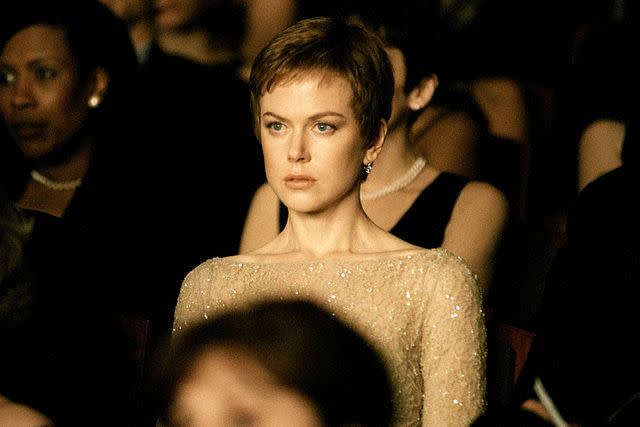
New Line/courtesy Everett Collection
BirthNicole Kidman, Birth (2004)
Kidman, crowned with an Oscar for playing Virginia Woolf with a parrot’s beak for a nose in The Hours (2002), has often kept her dance card filled with smaller, offbeat movies that don’t necessarily click with audiences. Birth, a wintry little masterpiece, showcases what could well be her richest performance. She plays Anna, a Manhattan widow trying to make sense of a boy’s preposterous claim that he’s the reincarnation of her late husband. In one extraordinary, single-take closeup that lasts more than 3 minutes, Kidman silently registers Anna’s roiling inner struggle while listening to a thundering concert piece by Wagner. Kidman has seldom been so exquisitely beautiful — there are strong echoes of Mia Farrow in Rosemary’s Baby — and she pulls off the incredibly tricky business of conveying Anna's slowly rekindled love for her husband while avoiding any suggestion (which would have doomed the movie) that she’s falling in love with the kid. Birth is a chaste romantic fantasy that sinks into something like tragedy.
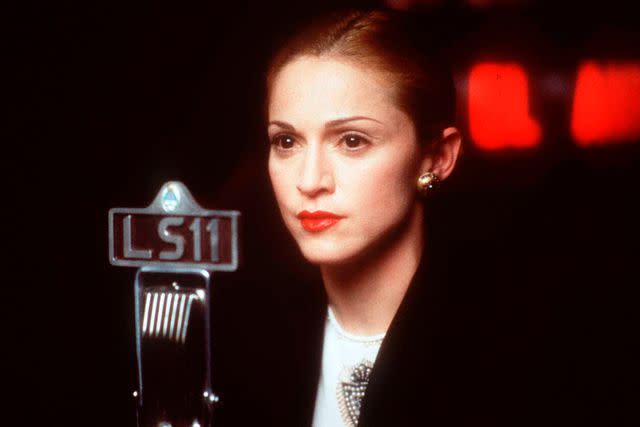
Hulton Archive/Getty
EvitaMadonna, Evita (1996)
Madonna has struggled, to put it mildly, to achieve success as a movie actress — she can be so unsure of herself in a role that you just about lose all patience with her. But Evita drew on her undisputed strengths as a music-video performer — the role of Argentina’s Eva Perón is sung through, without dialogue, and the role is sexy and sharp-edged, with a metallic harshness (plus, it's not emotionally all that deep). If you can strike a pose while singing, and Madonna surely can, you can pull off a triumph, and Madonna surely does. Admittedly, the thought that Meryl Streep at one point was going to star (with Oliver Stone directing) can set you wondering about what might have been: You can just imagine Streep's Evita — deluded, messianic, pathetic — with her arms raised above an adoring multitude. But that Evita doesn’t exist. Madonna’s performance ranks up there with Liza Minnelli’s in Cabaret.
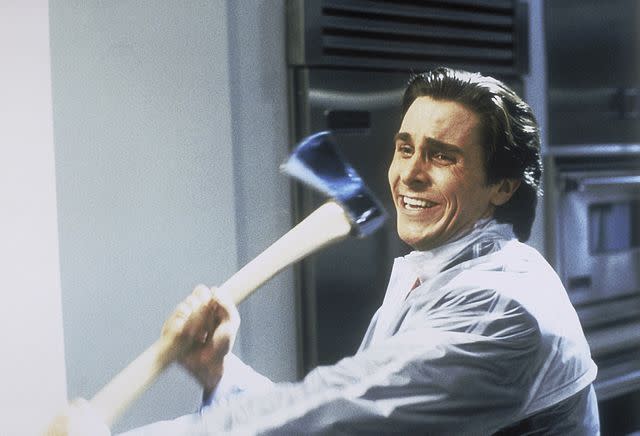
Lions Gate/courtesy Everett Collection
American PsychoChristian Bale, American Psycho (2000)
You wouldn’t necessarily have wanted Bale to win Best Actor, but he deserved to at least be allowed into the race for his performance as Patrick Bateman, a depraved killer — his murders are almost bacchanalian in their blood-shedding — who spends his days on Wall Street as a specialist in mergers and acquisitions (or, as he puts it, “murders and executions”). Bale, speaking in a bland, hollow voice that has the slightest hint of frat-boy joshing, delivers a piece of polished, satiric archness that goes well beyond the obvious allegorical gag (capitalism = murder) into ... what, exactly? An unsettling but impressive realm of deadpan commitment — sort of like A Clockwork Orange, another, earlier film about a sociopath, if it starred Will Ferrell. (Leonardo DiCaprio, by the way, had considered the part, but passed.)
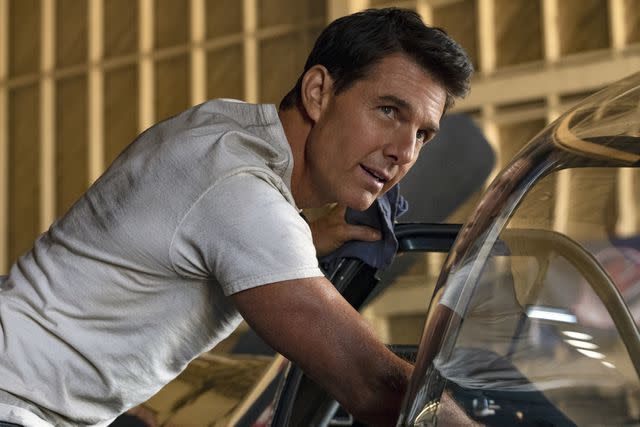
Scott Garfield / Paramount Pictures / Courtesy Everett
Tom Cruise in 'Top Gun: Maverick'Tom Cruise, Top Gun: Maverick (2022)
There are movie stars who can act, and those who can’t. Cruise, though, is something in between, a movie star who can act as if he’s acting: Every smile and gesture has the heroic conviction of a performer who wants his presence to register with seismic force. Cruise happens to do this exceptionally well — better than anyone, really. Isn’t that as good a reason for an Oscar nomination as any? Maverick, which actually improved on the original 1986 Top Gun, was an enormous hit, and the whole enterprise — with its military hardware, gung-ho spirit and polite romance — seemed to emanate wholly from Cruise’s certainty, will power and view of himself in the world (and Hollywood). Surely this should count as something with the Academy.
Lupita Nyong'o, Us (2019)
Here's another example of Oscar’s disinterest in exceptional performances that happen to be in horror movies. N’yongo, who won Supporting Actress for 2013’s 12 Years a Slave, showed a revelatory emotional range here — she plays two characters who happen to be (on what turns out to be a very freakish level) the same person: There’s Adelaide, a woman with a perfectly comfortable life with her family, and then there’s her murderous doppelgänger, Red, who belongs to a frightening legion of “twins” suddenly assaulting society. N’yongo plays Adelaide and Red very distinctly — Red speaks in a voice ragged with pain — but also establishes an odd empathy between them. The performance swings back and forth with the diabolical momentum of Poe’s pendulum.
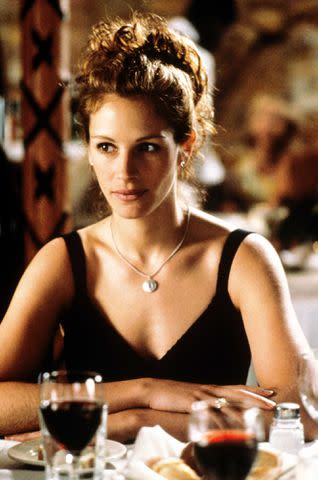
TriStar/courtesy Everett Collection
My Best Friend's WeddingJulia Roberts, My Best Friend’s Wedding (1996)
This early performance is one of Robert’s most delightful — and possibly counts as her first mature performance, as well: It introduced the note of thorniness that’s been key to so many of her later vehicles, including August: Osage County (2013) and the Amazon series Homecoming (2018). Perhaps that touch of ornery complexity counted against her this time out, along with the fact that Wedding is a subversion of rom-com fantasy — in fact, it’s the opposite of Pretty Woman, for which Roberts, as a the world’s most winningly lustrous sex worker, was nominated for Best Actress. Here she’s Julianne, a food critic who decides she wants to marry an old friend (Dermot Mulroney) — although that means she'll have to disrupt his upcoming marriage (to Cameron Diaz, also delightful). If you don’t root for Roberts here — who would want to see Cameron Diaz hurt? — you spend the movie anticipating the moment she'll finally sort out this whole mess and bring the story to a harmonious close. Only a performance of real magic could accomplish that.
Lady Gaga, House of Gucci (2021)
Director Ridley Scott’s film about how the Gucci family lost control of their fashion empire is a dismal affair, inert to the point of supinity and poorly acted by the likes of Al Pacino and Jared Leto. It wouldn’t even be worth thinking about if it weren’t for the unforgettable, marvelous fun of Lady Gaga’s performance as the infamous Patrizia Reggiani, who was convicted of murdering her ex-husband, Maurizio Gucci (Adam Driver). In retrospect, Gaga may not have done her Oscar campaign any favors by going on and on about how hard she worked on the role, how she pushed herself to such a dark place that eventually she hired a psychiatric nurse to be on set. What you see on screen doesn’t suggest anything of the sort: The performance, which comes garnished with a heavy Italian accent and a big, dark wig, is alive with what feels like impulsive, unrehearsed theatrical verve. Like a hot sauna stone splashed with water, Patricia sizzles with rage. Gaga isn’t subtle, but she isn’t over the top, either — it may not be possible for her to go over the top. Not when she’s the one who defines the height.
Never miss a story — sign up for PEOPLE's free daily newsletter to stay up-to-date on the best of what PEOPLE has to offer, from celebrity news to compelling human interest stories.
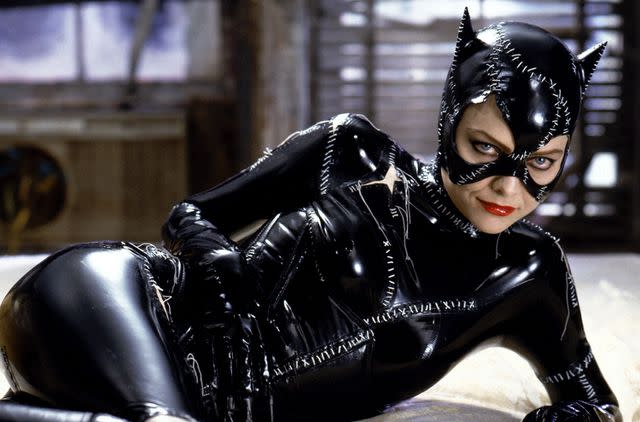
Michelle Pfeiffer, Batman Returns (1992)
A better title for director Tim Burton’s second Batman film might have been just Catwoman. That would have been one way, at least, to acknowledge Pfeiffer’s beautifully crafted performance, which brought an intense neuroticism and a a dark sexuality to the role — this is perhaps the fullest expression ever of the rococo perversity of Burton’s sensibility. And the glamour of a genuine Hollywood star still clings to her, giving her Catwoman a romantic glow. It’s one of the few truly great superhero performances — and a lot more pleasurable than Joaquin Phoenix’s excruciating (but Oscar-winning) turn in 2019’s Joker.
For more People news, make sure to sign up for our newsletter!
Read the original article on People.


